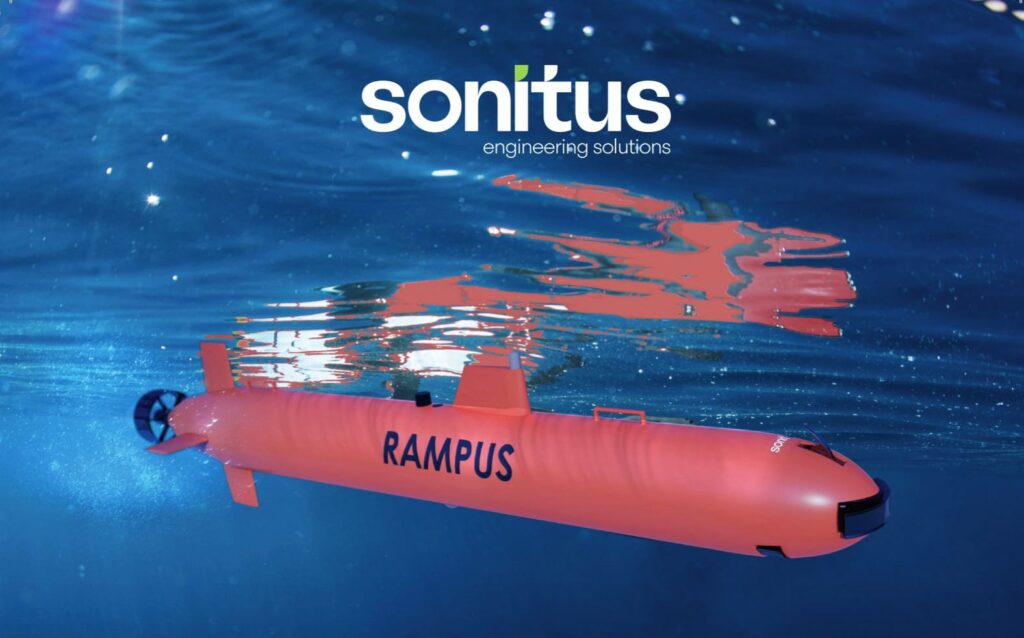Turkish Sonitus Unveils The New RAMPUS Unmanned Underwater Vehicle
Turkey, well known for its development of unmanned aerial vehicles as well as numerous projects to develop unmanned ground and naval vehicles, is now working to fill the gap in unmanned underwater vehicles (UUV). In this context, Sonitus Engineering, a Turkish company that develops solutions for the defense, aviation, and maritime sectors, unveiled RAMPUS, a new unmanned underwater vehicle (UUV) designed to explore deep oceans and conduct extensive research.
Rampus, developed by Sonitus Engineering, is an autonomous modular underwater vehicle capable of recording sonar data and camera images for deep ocean exploration. This vehicle, which has a hydrodynamic shape, can be controlled remotely on predetermined routes while also operating autonomously when out of range. Rampus, which can perform operations up to a depth of 1000 meters, can carry versatile sensors with the ability to go further and deeper.
The vehicle’s launch and recovery system is intended to operate at the stern of a ship, allowing it to be launched and recovered from watercraft with ease. Rampus, which can obtain detailed images using high-resolution imaging systems, can record sonar scanning information as well as in-vehicle communication data (speed, battery level, depth, and so on), as well as images captured during the mission. Rampus can perform a variety of tasks with these features, including mine detection, intelligence and surveillance, seabed mapping, pipeline and subsea structure inspection, oceanographic and hydrographic surveys, debris area mapping, and search and rescue operations.
The company began its work in this field by developing the NARVAL 1006 autonomous underwater glider. NARVAL 1006, Turkey’s first unmanned underwater glider, was unveiled in October last year, at the SAHA EXPO International Defense and Aviation Fair in Istanbul. Company officials at the time stated that Narval was just the beginning and that they were aiming to diversify this family of vehicles in the near future by developing more advanced UUVs. Turkey, which currently uses Remotely Operated Vehicles (ROV) rather than autonomous underwater vehicles to perform a variety of tasks, is expected to put these and similar systems into service in the near future.

